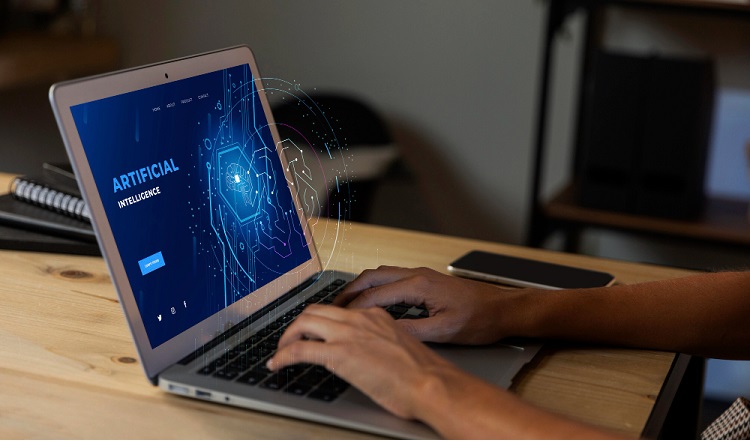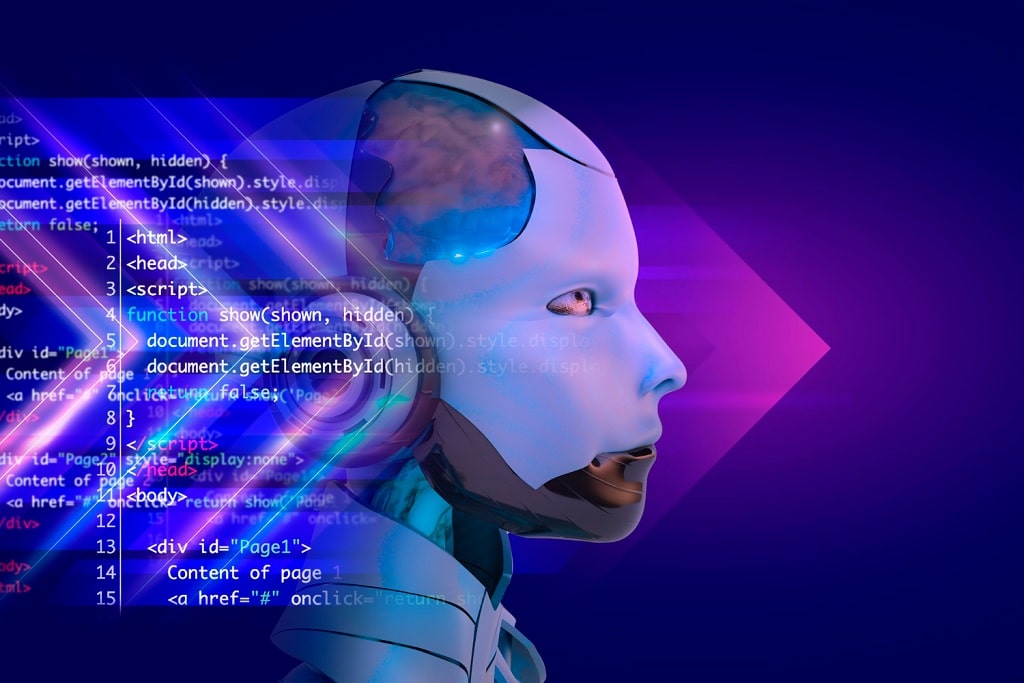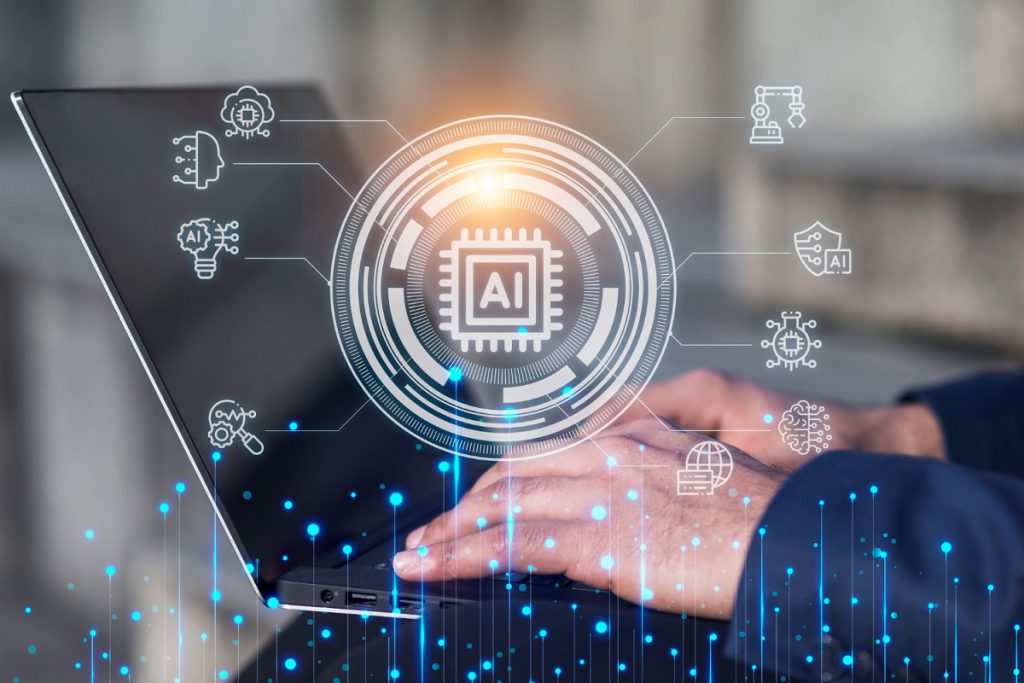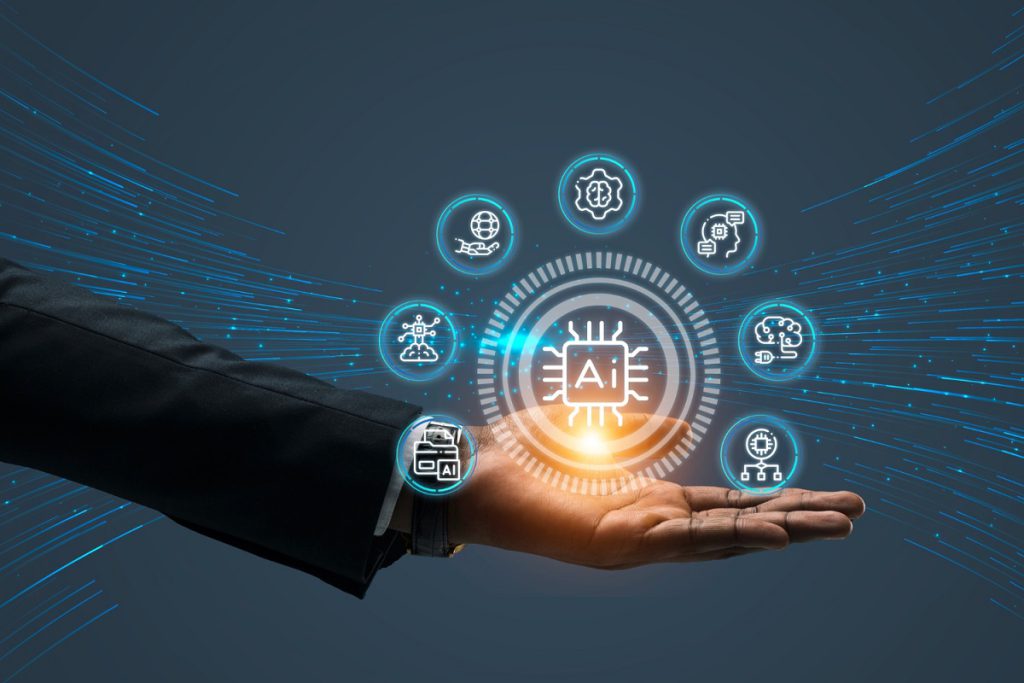The health care industry comprises all hospitals, clinics, medicine dispensaries, and medical shops.
To ensure that medical treatments are done properly at the right time, documentation work should be atomized, workflows in the health care industry should be optimized, and traditional practices should be replaced by AI-enabled software systems that can elevate health care capabilities within the nation and abroad.
In this blog, we will explore the top 5 ways AI can revolutionize the health care industry.
13 ways AI can revolutionize the health care industry
AI starts a change in healthcare by improving diagnoses, making treatments more personalized, and changing the way patients are cared for. This will lead to a better future.

1. Precision Medicine and Personalized Treatments
Research and development of machines can be done effectively with the use of artificial intelligence.
With computer-simulated applications, we can check the impact of medicine on different animals and extend our scientific exploration in the field of medicine discovery.
Using precision medicine, we can target the germs without affecting the other organs, which helps in a quicker recovery from disease without any side effects.
2. Diagnostic Accuracy and Early Detection
AI-powered diagnostic tools are significantly enhancing the accuracy and speed of disease detection. Using AI and ML, we can analyze medical images, such as x-rays and MRIs, with absolute precision.
This helps in better visualization in cases of fracture, bone breakage, or dislocation. AI-enabled apps in the health care industry help analyze patients in a better way and improve the recovery rate.
AI’s ability to identify subtle patterns and anomalies contributes to a higher level of diagnostic confidence.
Related: Benefits of Working with Top AI Consultants in India
3. Predictive Analytics for Disease Prevention
AI’s predictive analytics capabilities are instrumental in identifying individuals at risk of developing certain health conditions.
By analyzing historical patient data, lifestyle factors, and genetic predispositions, AI algorithms can predict potential health risks.
Healthcare providers can then implement preventive measures, personalized interventions, and targeted screenings to mitigate these risks, ultimately reducing the burden of chronic diseases.
4. Efficient Administrative Processes
Beyond clinical applications, AI streamlines administrative tasks, freeing up healthcare professionals to focus more on patient care.
Intelligent chat bots and virtual assistants handle appointment scheduling, prescription refills, and routine inquiries.
This not only improves the overall patient experience but also optimizes operational efficiency within healthcare facilities.
Read: A roadmap to design AI products for any business size
5. Drug Discovery and Development Acceleration
AI expedites the drug discovery and development process, traditionally known for its time-consuming nature.
Machine learning models analyze vast datasets to identify potential drug candidates, predict their efficacy, and streamline clinical trial designs.
This acceleration not only reduces the time and costs associated with bringing new drugs to market but also increases the likelihood of discovering novel treatments.
6. Wearable AI-enabled IOT devices for patient monitoring
With the help of wearable IOT devices, we can monitor the health status of the patients, capture useful data, and transmit the data to a medical doctor or physician who can observe them accurately.
This helps save the lives of critical patients who need an immediate cure at the time of need.
7. AI-powered electronic health records
Managing health records is a complicated process in the health care industry, especially when the patient has a previous ailment from different hospitals.
This can be automated with the help of unified electronic health care records, where we can easily store information about the patients and retrieve their data at the time of need with a unique patient’s identification number.
Related: Benefits of Customized AI Solutions for Aerospace Sectors
8. Brain mapping for psychometric treatment
In order to understand the physically challenged, like deaf and dumb patients, we can utilize a brain mapping technique that uses artificial intelligence and neural networks to interpret the thoughts of the mind using frequency.
This can help us with psychometric treatment as well.
9. AI-driven health care educational apps
Using AI-driven health care educational apps, we can train nurses and doctors for the treatment of specific diseases.
These applications use computer simulation, drug delivery, and analyzing body impacts after a drug is given, which helps in the proper analysis of specific diseases and the better cure of patients.
10. Genome sequencing with AI-driven insights
Perhaps the major development can be made in the field of genome sequencing, where we can easily interpret and understand the sequence of genes in organisms, which can help us in the clinical creation of clones with the help of genome sequencing.
In this way, we can develop real organisms that can be utilized for medical purposes on a large scale.
Related: Top 10 Future Trends for AI in Banking Sectors
11. Digital AI-enabled surgery with augmented reality features
Surgeries and operations need precision and better visuals on screens. This is made possible with the help of a digital AI-enabled surgical screen that comes with augmented reality features.
On these screens, doctors can visualize the cross-section of the patient’s body in a magnified and clear way.
12. Personalized health care and wellness applications
Using a highly efficient AI-driven health care wellness app, we can easily monitor the food intake and energy utilized in our daily routine.
In this way, we can maintain our health properly using personalized recommendations from health care wellness applications. These applications can send notifications to end users to eat food at the right time before it is too late.
It advises them to take medicines on time and monitor their heartbeat, blood sugar level, and blood pressure precisely.
13. AI applications for health care data security
The health care industry stores a huge amount of data that needs to be protected from data hackers, network intruders, and cyber criminals who are always looking to disrupt the health care industry to create havoc in society and the market.
Using AI-enabled applications, we can prevent the data from being leaked from health care system software, detect any vulnerable threats, and mitigate the risk with actionable tasks.
Conclusion: A Healthier Future with AI
As we witness the transformative impact of AI on the healthcare industry, it becomes evident that we are on the brink of a new era in patient care.
From personalized treatments and early detection to preventive strategies and administrative efficiency, AI is not merely a technological tool but a catalyst for a healthcare revolution.
The health care industry can automate and optimize workflows, reduce manual tasks, facilitate quick documentation, and detect fraudulent activities efficiently with the help of effective AI implementation.
By combining AI in the health care industry, we can not only quicken the medical drug discovery but also help in creating a healthier and more resilient future.
You may like to read:




